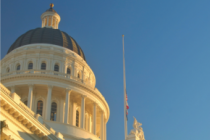Update on the SAFE Act
As you know, Congress passed and President Bush signed the Secure and Fair Enforcement Mortgage Licensing Act of 2008 as part of the Housing and Economic Recovery Act of 2008. The new federal law directed the States to adopt licensing and registration requirements for loan originators that meet the minimum standards specified in the SAFE Act. California’s Legislature passed SB 36 by Senator Ron Calderon and Governor Schwarzenegger signed the bill last fall. The SAFE Act and SB 36 were designed to improve accountability on the part of loan originators, combat fraud and enhance consumer protections.
Definition of Loan Originator and Dwelling
The SAFE Act defined “loan originator” as “an individual who (I) takes a residential mortgage loan application and (II) offers or negotiates terms of a residential mortgage loan for compensation or gain.”
In California, under SB 36, “Mortgage loan originator” means an individual who takes a residential mortgage loan application or offers or negotiates terms of a residential mortgage loan for compensation or gain. “Residential mortgage loan” means any loan primarily for personal, family, or household use that is secured by a mortgage, deed of trust, or other equivalent consensual security interest on a dwelling, or residential real estate upon which is constructed or intended to be constructed a dwelling. “Dwelling” means a residential structure that contains one to four units, whether or not that structure is attached to real property. The term includes an individual condominium unit, cooperative unit, mobilehome, or trailer, if it is used as a residence.
How to Obtain A Mortgage Loan Originator License
The California Department of Corporations (DOC) has released their Implementation Plan that outlines the steps you need to take to apply for and receive a mortgage originator license. The California Department of Real Estate has also released information about complying with their new regulations. In order to provide services as a mortgage loan originator in California, you must apply for and receive a mortgage loan originator license by July 31, 2010 (for those licensed by the California Department of Corporations). The DOC will waive the $100 application fee for all applications received on or before March 31, 2010. For those licensed by the California Department of Real Estate, the licensing deadline is December 31, 2010.
CA Department of Real Estate Licensees must report to the Department of Real Estate if they make, arrange or service loans secured by real property. This requirement applies to both residential and commercial businesses. The report must be completed online using Form RE 866-Mortgage Loan Activity Notification. Future business activity reporting will also be required. The deadline for reporting is January 31, 2010. ***WMA has been informed by the California Department of Real Estate that real estate brokers are not permitted to make chattel loans under their real estate broker license. Real estate brokers are only permitted to make loans secured by real property. Chattel loans are not secured by real property. As a consequence a mortgage loan originator license for chattel loans on mobilehomes will need to be secured from the Department of Corporations if parkowners wish to make loans on mobilehomes.***
The Department of Corporations requires that the applicant demonstrate financial responsibility, character and general fitness such as to command the confidence of the community and to warrant a determination that the mortgage loan originator will operate honestly, fairly and efficiently. This determination will be made using a number of measurements including, but not limited to: applicant’s DRE record (if applicable), any past bankruptcies, bond refusals, criminal/civil record. Another pre?requisite for applicants is coverage by a surety bond provided by the loan originator’s employer. The amount the bond must be at least $25,000. A reminder, the DOC strongly recommends applicants register with National Mortgage Licensing System and Registry (NMLSR) and obtain unique ID number by May 28, 2010 to allow for processing by the July 31, 2010 deadline. Fines for violating the SAFE Act and making unlicensed loans are $25,000 per incident. It will pay to be licensed or to fund a loan through a licensed mortgage loan originator.
Proposed HUD Regulations
HUD is currently working on regulations which are out for comment. The comment period ends February 16, 2010. MHI, our national trade association, is preparing industry comments. Of major concern to our industry are the definition of mortgage loan originator and the definition of compensation and gain. For mobilehome parkowners who have engaged in seller carry back financing these definitions are very important. In the proposed regulations there are some limited contexts where offering or negotiation residential mortgage loan terms would not make an individual a loan originator. The proposed regulations exempt a residential mortgage loan made with or on behalf of a member of his or her immediate family; where an individual seller provide financing to a buyer pursuant to the sale of the seller’s own residence; and a licensed attorney who negotiates terms of a residential mortgage loan with a prospective lender on behalf of a client as an ancillary matter to the attorney’s representation of the client, unless the attorney is compensated by the lender, mortgage broker, or other mortgage loan originator.
MHI is also working on the definition of compensation and gain with the hope that we can get some clarification as to what that means. If a parkowner is making a seller carry back loan is collecting interest, are they considered to be receiving compensation and gain? WMA will be working with MHI on these efforts and will keep you posted on their progress.
If you are interested in being licensed as a mortgage loan originator, please check out the California Mortgage Bankers Associations website: http://www.cmba.com. They have classes for the pre-licensure education requirement.






